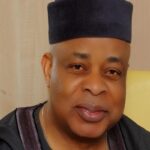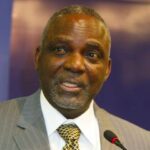
A few weeks ago, this columnist observed with concern and consternation that the number of aspirants for the 2023 elections was lengthening by the day without corresponding uplift in turnaround ideas that the country desperately requires. That lament notwithstanding, the number of aspirants has continued to soar especially among the ruling All Progressives Congress and the Peoples Democratic Party.
At first blush, one should give thanks that so many individuals have decided to enter the fray, some of them promising to turn the tide of Nigeria’s fortunes which had considerably ebbed. On deeper inspection, however, one comes to the realisation that many of the aspirants have been around for a long while and cannot be said to have performed exceptionally in previous dispensations, a few honourable exceptions notwithstanding. Like the National Merit Award, which once upon a time was bestowed on all comers among the political elite, there is nothing, generally speaking, distinguished about the rank and file which currently clutter the political space as presidential aspirants.
To bring the point home, and as this columnist argued in a much earlier forum, if the country has so many politicians who have performed meritoriously, then why is it in such a mess? So someone claims to have had experience spanning 25 years in various political offices but can hardly point to anything lasting or seminal he/she has achieved. It is not that alone. As the country has slipped into further and deeper decay, one looks in vain for the most part for constructive policy suggestions that these office seekers have made over time to ameliorate the crisis. In other democracies, legislators who wish to contest elections and move to the executive branch often point to speeches they made, opinions they expressed, motions they initiated that made differences. If a presidential aspirant was in the Senate over a two- or three-term period and he’s not remembered for remedial initiatives, why should anyone trust such a legislator with a higher calling? Take for example the issue of restructuring, which remains a sore policy plank in the current republic. If a presidential aspirant did not go on record for or against on the matter, how will he suddenly develop bright ideas on the perennial agitation for state police which most people agree is one of the answers to soaring insecurity?
Often, I have wondered aloud whether the political elite comes alive only at election times only to hear no evil and see no evil when elections have ended. For those in the ruling party, this has been attributed to the fear of criticising the helmsman, Major General Muhammadu Buhari (retd.). But in a democracy, criticism is a duty because leaders, who know their onions, can learn from criticisms even when they are adversarial. Besides, it was exciting to note that at some intervals and perhaps to break the unholy silence, Buhari’s wife, Mrs. Aisha Buhari, raised alarm about the state of the Aso Rock Clinic, the unsatisfactory performance of social investment and poverty alleviation schemes among others.
Curiously, the PDP, which had the task of providing alternative programmes and governance ideas, does not do much better apart from almost predictable critical remarks about extant policies. Most of these were done in the party’s name and not by individual politicians seeking to build a platform around compelling ideas of governance and perhaps also a movement that will be the game-changer. But now, and in spite of arbitrarily high and humongous nomination and expression of interest forms fees going up to N100 million in the case of the APC, aspirants fill up our political spaces, the latest being Professor Ben Ayade, Governor of Cross River State, and the presumably imminent declaration of former President Goodluck Jonathan on the APC platform. These declarations which have by no means ended have not been without a touch of drama as in the case of the oedipal confrontation between the National Leader of the APC, Asiwaju Bola Tinubu and current Vice President, Prof. Yemi Osinbajo, SAN. The drama which may not have ended pertains to Osinbajo’s antecedents as a former member of Tinubu’s kitchen cabinet and a trusted figure in the Tinubu political family.
To be sure, these almost umbilical political attachments do not prevent Osinbajo from running but it shows up a streak of incoherence among the ruling party that two senior politicians from the same political group and who normally should share a fellowship in terms of governance ideas are now at loggerheads because they both want to be Nigeria’s president. The same perspective applies to many of the top ministers in Buhari’s cabinet who, if the APC had an ideational plank, would have banded together in brotherhood coalescing around a unifying spokesperson and contender. Even allowing for geographical and ethnic disparities, there is little logic in the South-East, which claims that it is “its turn” to produce the next president, having close to 15 aspirants. This depicts political warfare in which no one trusts the other and there is no unanimity of purpose.
Of course, the political parties will sift through the bedlam and produce a candidate respectively but the parties’ job would have been made easier if they were not dealing with such a jamboree of contenders. That apart, whatever bitterness is generated may linger, perhaps even escalate, after the choice of candidates is made.
This brings us to the question: Why must everybody, so to say, have a go at the number one office, not respecting political kinship ties or the possibility that one person from the same political lineage may be as good as another? Partly, this is a reflection of the poverty of our democratic culture marked by costly ego conflicts, the lack of ideas and ideological moorings from which political parties ought to derive their bearings.
Besides, the lack of alternative careers that are both rewarding and give room for eminence explains the lure of office-holding as a perpetual watering hole and lubricant for politicians even when they have overstayed their welcome. In a setting in which office holding, at any cost, has become the preeminent career while other possible alternatives have been debased and sorely impoverished, staying in office becomes the only refuge in such a depressing situation.
There are several examples of politicians in the Western world who are invited to teach at elite universities, spend time doing their memoirs, and initiate new careers which in time can become as profitable if not more profitable than the political calling. Once upon a time, Nigeria had illustrious professionals in the legal and judicial professions whose skills were sought globally, for instance, judges like Akinola Aguda, T. O. Elias, Bola Ajibola had famous stints outside Nigeria in the course of their careers. Hardly anymore. The universities once on the world map had been denuded and deliberately malnourished. So are the other professions. This may well be the main reason why there is little or no peace in the political arena because it has become the only lucrative haven for talented Nigerians.
The simple answer is to build a political culture that downgrades office holding by reducing the cost of governance and making politics coequal to the other noble professions.
All rights reserved. This material, and other digital content on this website, may not be reproduced, published, broadcast, rewritten or redistributed in whole or in part without prior express written permission from PUNCH.
Contact: [email protected]
Copyright PUNCH.
All rights reserved. This material, and other digital content on this website, may not be reproduced, published, broadcast, rewritten or redistributed in whole or in part without prior express written permission from PUNCH.
Contact: [email protected]





